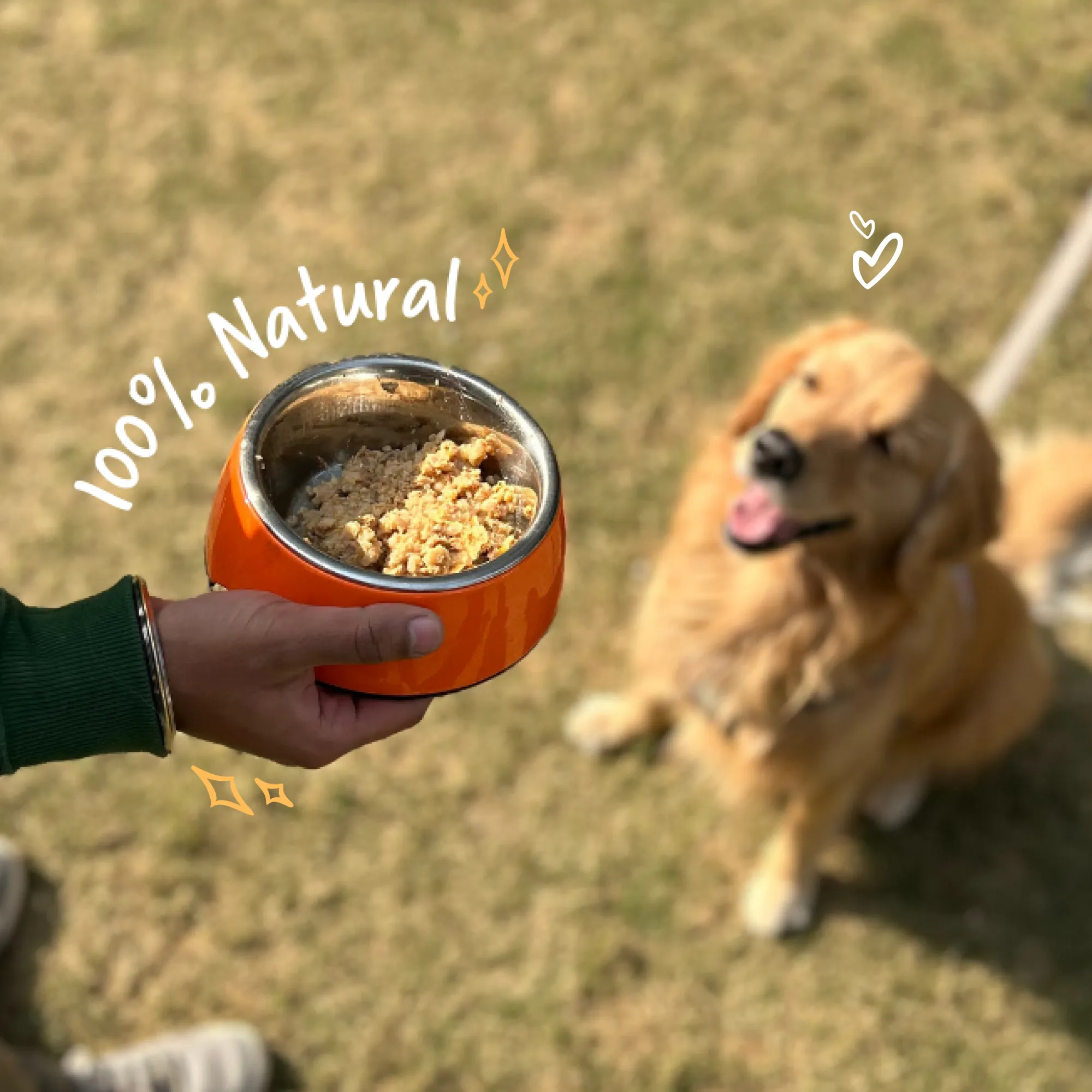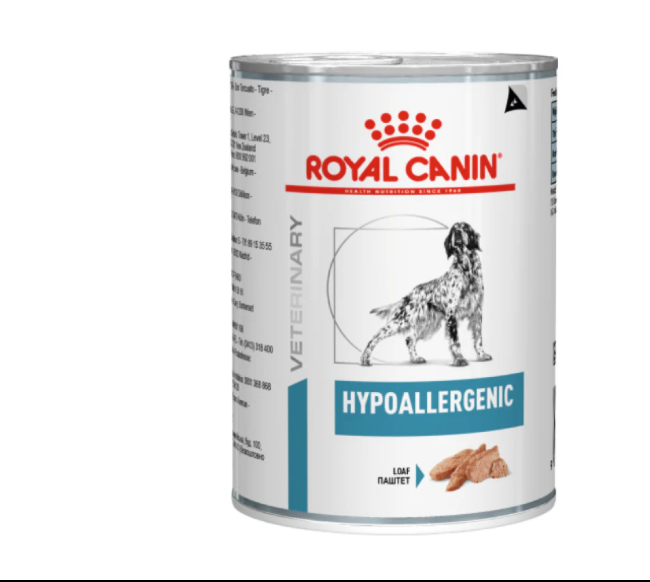Best Wet Dog Food for Sensitive Stomach
Discover the best wet dog food for sensitive stomach with Sploot. Gentle on digestion, packed with nutrients, and suitable for dogs of all ages

A sensitive stomach or stomach issues are not uncommon in dogs. Although this can sometimes depend on the breed of the dog, it can also depend on various individual factors.
In situations like this choosing the best wet dog food which specifically targets sensitive stomachs is vital to ensure your dog’s comfort and health.
Many dogs experience digestive issues such as vomiting, diarrhea, or bloating due to food intolerances or sensitivities. Proper nutrition, including easily digestible wet food, can soothe their stomachs and improve overall well-being.
This guide reviews top options and tips to help you select the wet food that is best suited to your pet’s needs.
How to Identify if Your Dog Has a Sensitive Stomach
Understanding whether your dog has a sensitive stomach is essential for their health. Look out for signs such as vomiting, diarrhea, gas, bloating, or loss of appetite, these often indicate digestive issues.
These symptoms may result from food allergies, intolerances, or low-quality ingredients. This all the more makes choosing the best wet dog food for a sensitive stomach crucial for alleviating discomfort. Other causes include sudden dietary changes, stress, or underlying medical conditions like gastritis.
Signs and Symptoms
Some common signs and symptoms of a sensitive stomach that you should pay mind to are:
- Vomiting
- Diarrhea
- Gas and bloating
- Loss of appetite
Causes of Sensitive Stomachs in Dogs
While the specific causes could only be determined by a vet, some common causes of sensitive stomachs in dogs are:
- Food allergies or intolerances
- Diet changes or poor-quality dog food
- Stress or medical conditions
Why Wet Dog Food is Better for Sensitive Stomachs
Wet dog food is a better choice than dry food for dogs with sensitive stomachs as it offers hydration, helps in digestion, and minimises allergens. Its nutrient-dense formulas support gut health, coat vitality, and overall well-being. Choosing the best wet dog food ensures optimal digestion, improved energy levels, and a happier, healthier life for your pup.
Here are a few things you’ll have to look out for when choosing wet food for your dog.
- High Moisture Content
- Wet dog food offers superior hydration, aiding digestion and preventing dehydration—key benefits for dogs with sensitive stomachs.
- Easy to Chew and Digest
- Its softer texture is ideal for dogs with dental issues or fragile digestive systems, making it gentler and easier to process.
- Minimises Allergens
- The best wet dog food often features limited ingredient formulas, reducing the risk of allergic reactions and helping identify dietary triggers.
- Nutrient-Dense
- Wet dog food provides a balanced mix of proteins, vitamins, and healthy fats, ensuring your dog gets the nutrients they need without upsetting their stomach.
- Optimal Digestion and Absorption
- The right dog food for a sensitive stomach enhances nutrient absorption, improving gut health and alleviating discomfort.
- Improves Coat and Skin Health
- With Omega-3 fatty acids and skin-friendly vitamins, wet food enhances coat shine and skin health, providing visible benefits.
- Enhances Energy Levels and Well-Being
- A nutrient-rich wet diet boosts energy levels, keeping your dog active and happy.
Feeding Frequency for Dogs with Sensitive Stomachs
As opposed to dogs that might not have stomach issues, dogs with sensitive issues might need a slightly altered feeding routine. Consistency in feeding schedules, paired with wet dog food prevents digestive discomfort and promotes nutrient absorption.
Here’s a feeding schedule you can follow to help manage digestion and support their overall well-being.
- Puppies: Need to be fed 3-4 small meals a day as small, frequent meals improve digestion and reduce strain on sensitive tummies.
- Adults: Need to be fed 2 meals a day to maintain consistency in meal times to support steady digestion.
- Seniors: Need to be fed 1–2 smaller meals a day. These meals need to be adjusted based on their activity level and digestive needs.
Essential Nutrients for Dogs with Sensitive Stomachs
Providing the right nutrients for dogs with sensitive stomachs ensures digestion support and overall health. Incorporating the below mentioned nutrients through wet dog food or tailored home made meals can significantly improve your dog’s digestive health. A balanced approach to nutrition ensures reduced stomach discomfort and supports long-term vitality.
Easily Digestible Proteins
Proteins that are easy on a dog’s digestive system play a crucial role in muscle repair and overall health, especially for dogs with sensitive stomachs. Sources like boiled chicken, turkey, and specialized wet food offer high-quality amino acids while minimizing the digestive workload. These ensure your dog gets the necessary nutrients without causing bloating, gas, or other discomfort associated with harder-to-digest options.
Low-Fat Content
Diets with low-fat content help reduce digestive strain, making it easier for dogs to process their meals while avoiding issues like pancreatitis or obesity. Lean meats like chicken breast and specialized low-fat dog foods are excellent choices. Such diets support overall energy levels and sensitive stomachs, providing essential nutrition without overloading their system with unnecessary fats.
Prebiotics and Probiotics
Prebiotics and probiotics are essential for maintaining a healthy gut microbiome, which directly influences digestion and immunity. Prebiotics nourish beneficial gut bacteria, while probiotics introduce these good bacteria to the digestive system. Found in yogurt, kefir, and fortified dog foods, these nutrients help reduce bloating, ease stomach discomfort, and promote regular bowel movements, ensuring your dog’s digestive system remains balanced and functional.
Complex Carbohydrates
Complex carbohydrates like sweet potatoes, rice, and oatmeal offer slow-releasing energy that is gentle on the digestive system. Unlike simple carbs, they are less likely to cause blood sugar spikes and are easier for dogs to process. These carbs also provide dietary fiber, which aids in smooth digestion and helps maintain healthy stool consistency, making them an excellent choice for dogs with sensitive stomachs.
Omega-3 Fatty Acids
Omega-3 fatty acids are anti-inflammatory powerhouses that promote skin and coat health, while also soothing inflamed digestive tracts. Found in fish oil, flaxseed, and salmon, these essential fats contribute to joint health, brain function, and overall vitality. These are beneficial for dogs with allergies, arthritis, or chronic digestive issues, making them a valuable addition to a balanced diet.
Vitamins and Minerals
Vitamins and minerals are critical for supporting immunity, bone strength, and overall well-being. Vegetables like carrots and spinach, fruits such as blueberries, and fortified dog foods provide these essential nutrients. They help prevent deficiencies, strengthen your dog’s natural defenses against illnesses, and ensure proper growth and development. Including a variety of these sources ensures a well-rounded diet tailored to your dog’s specific health needs.
Tips for Choosing the Best Wet Dog Food for Sensitive Stomach
It's always best to be extra careful while choosing wet foods for a dog with sensitive stomachs. Here are a few things you can keep an eye out for:
- High-Quality Ingredients
Opt for wet food made with real, high-quality proteins like chicken or fish to ensure easy digestion. - Avoid Artificial Additives
Steer clear of foods with artificial colors, flavors, or fillers that may irritate your dog’s stomach. - Balanced Nutrition
Look for wet food offering a proper balance of proteins, fats, and carbohydrates for overall health. - Limited-Ingredient or Hypoallergenic Options
Choose formulas designed for sensitive stomachs, such as limited-ingredient diets that reduce allergen risks. - Veterinarian Recommendations
Consult your vet for guidance on selecting the wet food that is tailored to your pet’s specific needs.
Best Wet Dog Foods for Sensitive Stomach
Commercial Options
These are a few commercially available wet food options that would be suitable to a dog with a sensitive stomach:
- Pedigree Gravy: Has easy-to-digest ingredients and supports digestion. It costs about Rs 2,000 for a pack of 60 pouches.

Product: https://www.pedigree.in/pedigree-adult-wet-dog-food-chicken-liver-chunks-gravy
- sploot Grain-free Gobble: Contains all essential ingredients to support the immune system and majorly contains animal protein and limited-ingredient formula, no fillers, and is gentle on digestion. It costs about Rs 700 for a pack.

Product: https://store.sploot.space/products/grain-free-gobble
- Royal Canin Wet Food: Includes high protein that is easy to digest that enhances gut health and coat shine. It costs close to Rs 5,000 for a small pack.

Product: https://www.findroyalcanin.com/products/medium-adult-gravy
Homemade Wet Dog Food
- Simple and healthy homemade meals can be a good option for dogs with sensitive stomachs, but always check with your vet to ensure they meet your dog's nutritional needs.
- Boiled Chicken and Rice: This simple meal contains high-protein and is gentle on digestion. Ensure you don’t add any salt to the meal.
- Pumpkin Puree with Rice: This meal is rich in fiber and soothes upset stomachs.
Vet-prescribed Wet Dog Food
There are specialized brands that provide formulations tailored to meet the needs of dogs with specific digestive issues or medical conditions.
Royal Canine Hypoallergenic: This formula contains hydrolyzed proteins for severe allergies.

Product: https://www.royalcanin.com/in/dogs/products/vet-products/hypoallergenic-canine-wet-4084
Hill’s Prescription Diet: It supports digestive care and takes care of gut health.

Product: https://bit.ly/49dKGbt
How to Transition Smoothly to Best Wet Food for Dogs with Sensitive Stomach
As with any transition, a change from their regular meal to wet food should also be done slowly and gradually over a period of 7–10 days. Here are a few steps you should follow to make the transition easier:
Gradual Introduction
Start by mixing small amounts of the new wet dog food with your dog’s current food. Slowly increase the proportion of the new food each day while decreasing the old food. This helps avoid digestive issues.
Monitor for Reactions
Keep a close eye on your dog for any signs of discomfort, such as vomiting, diarrhea, or gas. If you observe any adverse reactions, consult your vet for advice and possibly slow down the transition.
Consistency is Key
Stick to the schedule to avoid disrupting your dog's digestive system. Gradual transitions allow their stomach to adjust to the new food.
FAQs on Wet Dog Food
What wet dog food is best for dogs with sensitive stomachs?
- Wet dog food for sensitive stomachs should be easily digestible, with high-quality proteins and limited ingredients. Brands like sploot or Hill’s are great choices for dogs with digestive issues.
How do I transition my dog to wet dog food if it has a sensitive stomach?
- Gradually introduce the new wet dog food over 7–10 days by mixing it with your dog’s current food. Slowly increase the portion of the new food while monitoring for any adverse reactions.
What foods are good for dogs with sensitive stomachs?
- Foods that are gentle on digestion, such as boiled chicken, rice, and pumpkin puree, are great for dogs with sensitive stomachs. Additionally, high-quality wet dog food with limited ingredients can help avoid triggers.
Does wet dog food help with an upset stomach?
- Yes, wet dog food can aid in soothing an upset stomach by providing hydration and easy-to-digest nutrients. The high moisture content helps prevent dehydration and promotes better digestion.
